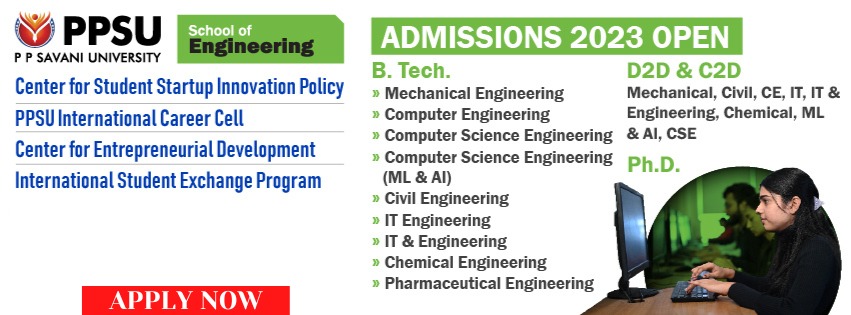Top Job Interview Questions during College Placement and how to Tackle them
Just how to Answer the Most Typical Job Interview Questions is always on one's mind when one goes for campus placement interviews. There are a lot of tenets about these interviews including your attire, manners, attitude, honest depth of knowledge; but sometimes a cliché question can floor you because it has so many answers and you do not have the experience to be able to answer them. At times a few questions are asked just to throw you in an awkward position and then you are observed about how you handle these tough situations. In this article, I will discuss these questions and how to anticipate and be prepared to deal with them. Being prepared does not mean cramming answers, but will involve methods to answer them.
If it's your first interview for a graduate job or your first one with a company you admire, then attending a job interview can seem more than a little daunting. That a hurdle. You want it so much! And thus you can hesitate, think too much and then answer. Somewhere, spontaneity is lost in these situations. Treat all job placement interviews at par and have no preferences; you will do better.
The good news is, you may be dealing with not too many imaginative individuals when it concerns inventing questions, suggesting there are a variety of normal interview questions in their toolboxes that get recycled. This makes it much easier to intend your answers, keep your nerves in control and for that reason, help you to present yourself in a calm and also efficient fashion.
Career guidance through an excellent online career counselling
Read on for a few of some of the most typical job interview questions, with advice on how you'll be expected to respond to.
1.Tell me about yourself
Among the most common job interview inquiries, "inform me about yourself" is usually the interviewer's opening gambit to swiftly figure out what you're all about. This question actually gives time to the interviewer to settle in your bout of interview, size you up and make a basic assessment of you as a person and whether you appeal to him or her. He knows you are nervous and thus is figuring you out by the extent and preciseness of your answer.
Your answer shouldn't be a basic recitation of your CV (which the job interviewer has ideally at least scanned already). Instead utilize this as a chance to make a quick pitch to sell on your own for the role, highlighting not just your primary selling points. Describe your individual technique to function as well as why you want to work in the sector. Briefly outline any pertinent job experience from your present duty, but certainly don't enter into as much information as you do on your Curriculum Vitae, as you will most likely be asked to go into additional information regarding these functions later; and it could get boring. Remember to pause, smile and at times express with your eyes.
Be careful not to sell yourself too hard. This question is created to figure out what you're like as a person, what your ambitions and rate of interests are and why your association with the duty. Your answer should be short and succinct (ideally one minute long), with a last sentence to sum up why you requested the placement and also what you're presently trying to find (e.g. "a brand-new difficulty or challenge").
2. Why do you want to work with us?
This can be among the harder interview questions to handle, specifically if your definite motivation is just to be able to pay the bills or fill the gap or work to avoid unemployment. Right here you must remind yourself that although bill-paying is a high top priority, interest and zeal in your job is much more vital.
To address this question, concentrate on why the work promotion attracted you personally. Let your interviewer know if you're interested in the work the company produces, the culture it offers or the progression the role promises. If, when you were investigating the firm, you discovered that a current project associated with the company interest you, do mention that.
3. What do you know about our company?
If you have done your research study prior to the meeting, chances are you recognize fairly a great deal about the company. What interviewers are searching for below isn't a half hour talk about whatever the firm has ever before done, yet to see to it you've considered the business prior to coming to the meeting.
Start with the basics; exactly how old is the firm as well as what do they do? Every business has some kind of output, so state what this is; whether it's something they're marketing (e.g. tools or food products) or something they're producing for intake (e.g. news or information). Talk about the latest products or projects of the company. Be very concise and to the point. They know about their company; thus could easily get bored. The latest products mentioned would just keep interested and interaction alive.
4. Where do you see yourself in the next few years?
Difficult to answer, but most commonly asked! No easy answers to this question as you really do not know. The interviewer won't be expecting you to be as well specific with this, so do not feel like you need to discuss the firm you're speaking with for in your future plans. Yet at the same time, do not point out working for a competitor!
What you should address with is where you wish to remain in five years- broach your passions, abilities you intend to have gained already, and also exactly how the task in question would certainly help you work in the direction of this. A lot of companies won't look as well kindly on individuals who broach their company as a tipping rock; they wish to become aware of your enthusiasm to establish you skillfully.
5. What can you bring to this role?
This is key, because it's one of a few typical interview questions that gives you a chance to really sell yourself and all your relevant skills. Try to relate these skills to the role you are interviewing for.
If you're a brand-new grad, now's the possibility to highlight all the 'transferable abilities' you got throughout your degree, such as analytical capacity, written and spoken interaction abilities and also IT mastery, to call yet a few. Work hard on this answer!
6. What is your biggest asset or your strength?
Your strength may not match the requirement or nature of the job. So think carefully before you answer. This inquiry is often a stumbling block for numerous brand-new grads, merely since they haven't yet had the possibility to establish confidence in their professional abilities. This commonly leads to answers that are too small or vague, this showcasing you as lacking the skills as well as self-confidence to take on the task available.
Your solution must resolve a strength that is relevant to the position, yet this can be anything that makes you stand out, whether you gained this quality at the office, while travelling or at college. Multitasking, company skills or innovative reasoning could be fitted around your personality.
It's crucial to tread the line between modest and overconfident-- too simple and your strengths will not show, also on the other side you may sound arrogant. Focus on the realities of your strengths, consisting of particular instances of when you've had to utilize them and also exactly how you've created them.
7. What is your biggest weak point?
Rather than seeing this question as an attempt to catch you out, see it as a chance to address the skills and attributes you 'd most like to develop and improve in your future career. This is also the chance to address any holes in your CV, highlighting your motivation to fill in those gaps.
A good answer will outline a weakness in your skillset (e.g. technical ability) and then explain how you are working on this (e.g. by studying a MOOC in beginners' programming or building a website). If you are honest about your weaknesses but show evidence of motivation to improve, employers will see this as strength in character, proving you have integrity, self-awareness and ambition.
8. What do you consider to be one of your biggest accomplishments?
Similar to the "biggest strength" question, graduate employers will often use this question in order to get you to provide more specific examples of your skills. The accomplishment can be anything, from a great student project to a personal feat of courage, but ensure that the skills shown in this accomplishment relate to the job role in question.
To answer this question well, you'll talk about the accomplishment itself, what problems you had to overcome in order to succeed, what you enjoyed about the experience, and what results you achieved.
9. Tell us about a challenge you've faced and how you dealt with it.
This is a behavioral interview question that enables interviewers to see how you react to problems that may arise. It's a good idea to think up an answer for this one beforehand, so it doesn't catch you off guard in the interview. The challenge in question can be anything from a difficult customer in a previous job, a problem in a group project at university or a particular module you struggled with.
A good way to explain this is using the STAR method; explain the situation (provide some context to the event), the task involved, the action you took to resolve this task, and what the result was.
10. Have you got any questions?
The answer to this question is never "no"; you should always have something to ask at the end of a job interview. A few intelligent questions can help to show that you are serious about getting hired, as well as demonstrating your initiative.
Although it's helpful to jot down a few queries before the interview, it's likely that these may be addressed during the interview itself. If you do pre-prepare your questions, make sure to listen carefully during the interview so as not to ask a question that's already been answered. If you find that at the end of the interview all your prepared questions have been answered, just mention to the interviewer that they've already covered everything you wanted to ask.
Other good questions to ask the interviewers are "what training will be provided if I were to be offered the role?" and "what would be the expected progression route in this role?".
I have tried to cover the most tedious but commonly asked questions. Above all these, maintain a very positive and honest attitude during the interview. Look and sound pleasant, up to the task and willing to take challenges. Don’t fidget and look into the eyes of the person asking the question. We hope you do well in your next interview.
Also See:
- Top 10 Tips to Ace Your Placement Interview
- Why Should Learning Be Started at an Early Age?
- Hinglish is Taking the World by Storm
- What is the right time to choose a career?

















Leave a comment